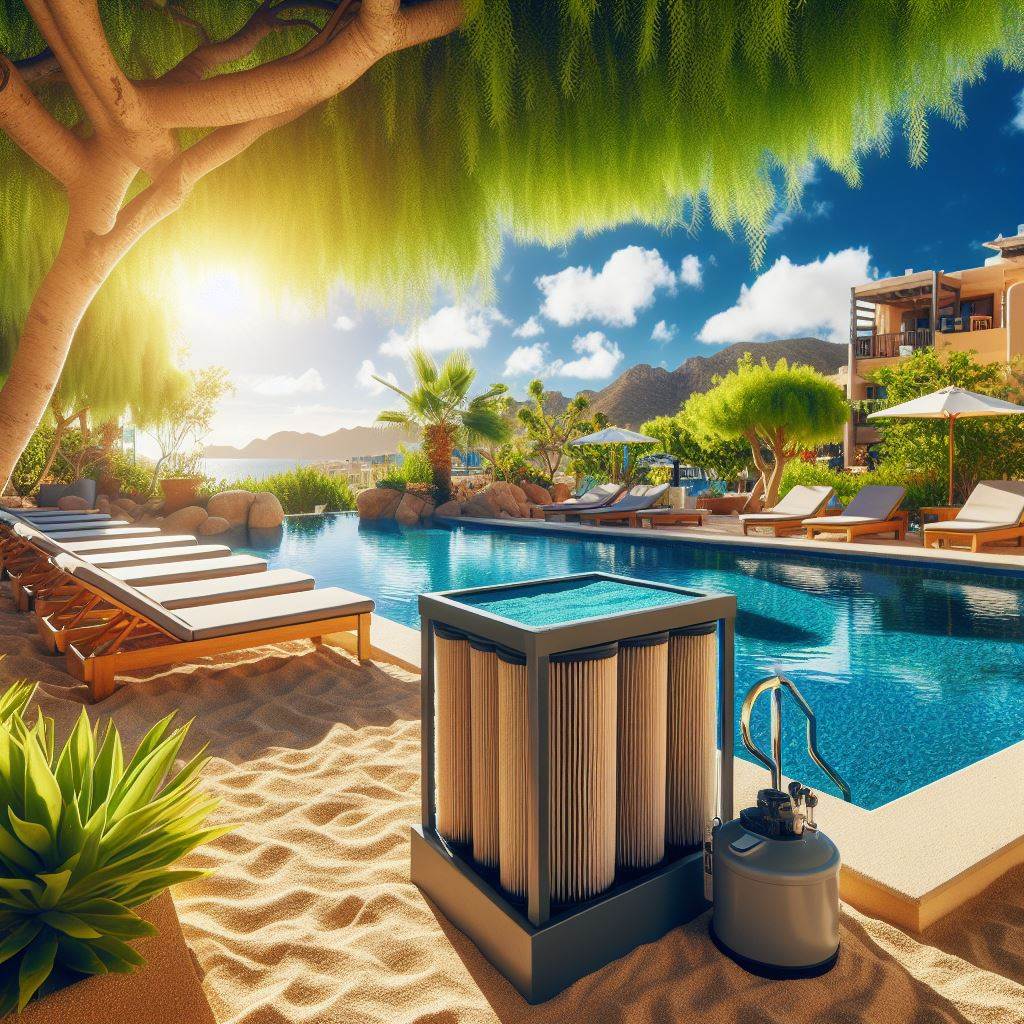When the cold winter season arrives, most pool owners might think they can pause their weekly pool maintenance until spring. However, neglecting winter pool care can affect water health and lead to costly repairs. Whether you choose to fully winterize your pool, keep it open, or use a hybrid approach, diligent winter pool maintenance will ensure a smooth transition to the next swimming season. In this article, we will delve into the best winter pool maintenance tips to keep your pool in top condition for the warmer days ahead.

Regularly Test Your Pool Water
Even if you don’t use your pool often during winter, regular water testing remains crucial. As temperatures drop, you can reduce the testing frequency, but maintaining chemical balance in the water is still essential. Here are some winter pool water testing recommendations:
- If the water temperature is 70°F (21°C) or above, test the water at least once a week.
- If the water temperature is 65°F (18°C) or below, test the water at least once or twice a month.
- If the water surface is frozen, do not break the ice to get a sample; wait for the ice to melt.
Using a reliable home water testing kit to regularly check the pool water will help maintain the proper pH, total alkalinity, and free chlorine levels. This not only protects the pool structure and equipment but also prevents water quality issues that could pose health risks and result in costly repairs.
Keep Your Pool Clean
Maintaining a clean pool is important, even in winter. Leaves, debris, and other contaminants can quickly accumulate, depleting chlorine levels and making the pool more susceptible to algae and bacteria. Here are some ways to keep your pool clean in winter:
- Clean uncovered pools daily, using a pool sand filter, vacuum, or automatic pool cleaner to remove debris from the pool floor.
- Cover the pool with a high-quality winter cover, safety cover, or automatic cover when not in use to prevent debris from entering the water.
- Regularly remove leaves and debris from the pool cover and use a cover pump to remove excess water.
These measures will save you time and reduce the amount of cleaning and maintenance required when spring arrives.
Ensure Proper Water Circulation and Adjust Pump Run Time
Proper water circulation is key to maintaining water quality, especially for pools that remain open during winter. Circulating water helps distribute disinfectants evenly throughout the pool, preventing dead spots where algae and bacteria can thrive. However, since algae growth slows in colder temperatures, you can reduce the pump’s run time accordingly.
Adjust the pump’s run time based on local weather conditions. For example, extend the pump’s run time during warm periods and reduce it during cold periods. As a general rule, for every 10°F (5.5°C) increase in temperature, run the pump an additional hour each day. For example, if the daily high temperature is around 50°F (10°C), run the pump for about 5 hours each day. For variable speed pumps, the run time should also consider equipment requirements and balancing high and low speeds.
Check Water Levels to Prevent Equipment and Structural Damage
Regularly monitoring the pool’s water level is a crucial part of winter maintenance, especially when the pool is covered and not frequently checked. Undetected pool leaks can cause severe damage to the infrastructure and equipment. If the water level drops too low, it can damage the pump and other equipment; if it gets too high, it can cause the cover to fail.
Check for signs of leaks, such as wet spots around the pool, and keep an eye on the water level to identify and address potential issues promptly. Maintaining the correct water level is vital for the integrity of the pool structure and the longevity of the pump and other equipment.
Prevent Freeze Damage
In cold climates, preventing pool equipment from freezing is critical for winter maintenance. If temperatures approach freezing, you must run the pump at high speed continuously to prevent pipes and equipment from freezing. In extreme weather conditions, be prepared with a backup plan, such as using antifreeze or draining the pipes and equipment.
Handle Chemicals Safely
Safety is paramount when handling pool chemicals during winter. Store chemicals away from children and pets and avoid mixing them with other substances. When using chemicals, wear appropriate protective gear, such as gloves and goggles, to prevent accidental contact and inhalation.
Regularly Inspect Pool Equipment
Even in winter, regularly inspecting pool equipment is essential. Ensure that the pool sand filter, pump, and heater are functioning correctly. Identifying and fixing any issues early can prevent more significant problems and expensive repairs.
The Cost-Effectiveness of Winter Pool Care
While winter pool care may seem like an extra expense, it can save you substantial repair and maintenance costs in the long run. By regularly testing water quality, keeping the pool clean, adjusting the pump’s run time, and inspecting equipment, you can avoid potential damage and ensure your pool is in top condition for the next season.
Conclusion
Winter pool maintenance is not just about covering the pool and waiting for spring. By following these maintenance tips, you can protect your pool from potential damage, maintain water quality, and ensure a smooth transition to the swimming season when the weather warms up. Regular testing, cleaning, circulation, and water level checks will help extend the life of your pool and provide more enjoyment for you and your family in the future.
